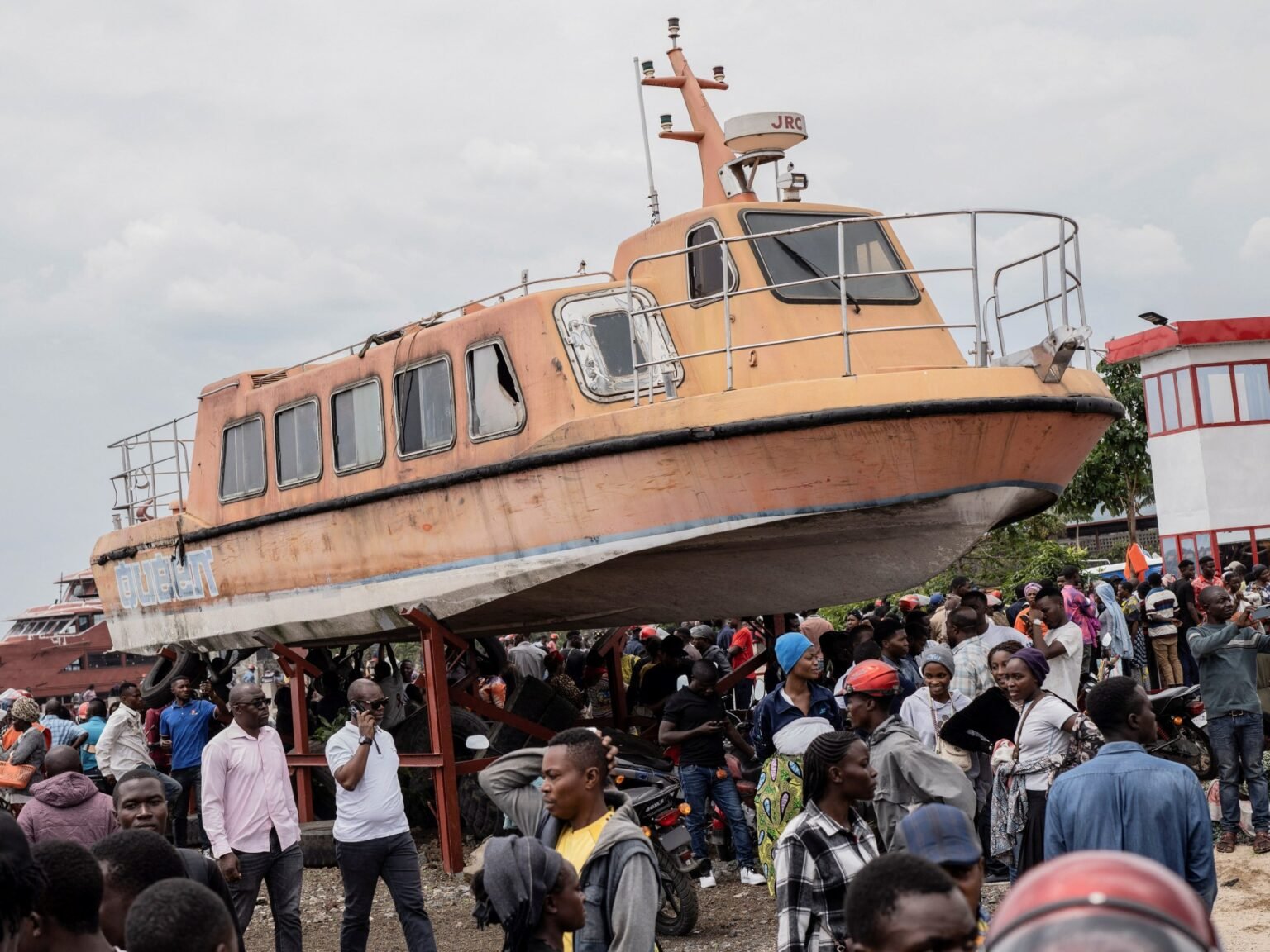At least 78 people have died after a boat capsized in Lake Kivu in the eastern Democratic Republic of the Congo, with 278 individuals on board before it overturned. Rescue efforts are ongoing, with at least 58 people saved so far. Governor of South Kivu province Jean Jacques Purisi stated that it will take at least three days to confirm the exact number of casualties, as not all bodies have been recovered yet. The boat, which was en route from the town of Minova in South Kivu province, sank just 100 meters from its destination at the shore of Goma.
An increasing number of individuals have been opting to cross Lake Kivu by boat to reach Goma, as land travel in the region is dangerous due to fighting between Congolese government forces and M23 rebels. Road closures have frustrated residents, as many roads are inaccessible due to ongoing conflict. The only viable way to travel between North Kivu and South Kivu provinces is by boat, leading to overcrowded vessels and heightened risks for passengers.
Survivors of the boat sinking have recounted harrowing experiences, with one individual describing seeing others drown and struggle to stay afloat in the lake. 51-year-old Alfani Buroko Byamungu shared his near-death experience from his hospital bed, expressing gratitude for divine intervention in his survival. Meanwhile, Goma resident Mushagulua Bienfait, who lost three family members in the accident, blamed the ongoing war for the tragedy, criticizing authorities for failing to ensure safe passage for travelers.
The M23 rebel group’s offensive in late 2021 has further destabilized the region, leading to the seizure of large territories in the eastern DRC and an increase in armed groups. This has contributed to the precarious situation in the area, impacting civilians who are caught in the crossfire. The incident has highlighted the challenges faced by residents in accessing safe and reliable transportation options, as road closures and conflict have limited travel routes.
Rescue operations and recovery efforts are ongoing, with officials cautioning that the death toll from the boat sinking could still rise as more bodies are discovered. The tragic incident serves as a stark reminder of the dangers associated with travel in conflict-affected regions, underscoring the need for enhanced safety measures and improved infrastructure to prevent similar disasters in the future. Authorities and humanitarian organizations continue to work to provide assistance to survivors and families affected by the boat capsizing, as the community grapples with the aftermath of this devastating event.












